At Outsider, we love getting out in nature. What we’re not so keen on are the harmful effects humans are having our planet. But old habits die hard. It’s all too easy to overfill the kettle or not bother to wash that takeaway tub you could recycle. Well, this is the year to tackle those habits and lower your carbon footprint. Here are some super easy ways you can kick-start your year with a new, planet-friendly regime.
All of our tips require minimal effort so there’s really no excuse!
Tips to go green at home:
1. Change your cooking habits
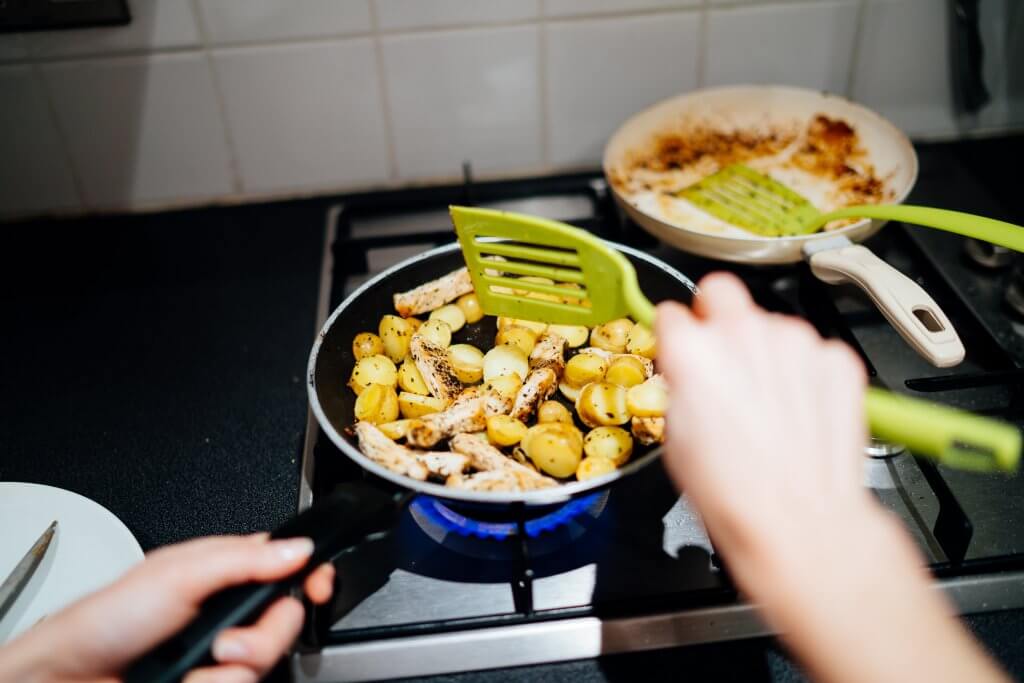
Microwaves are the most energy-efficient appliances, followed by hobs, and the biggest carbon culprit – ovens. An easy way to remember is the quicker the cooking time, the more energy efficient the appliance.
But if you must use the more carbon costly appliances, bear in mind some simple tips:
- Parboil before roasting to cut oven time.
- Put a lid on it! Roughly 60% more energy is needed to boil a pan of potatoes without a lid, and it takes twice as long.
- Always use the kettle to boil water not the hob.
- Only fill the kettle with the water you need. The Energy Saving Trust has estimated that if everyone in the UK only boiled the exact water needed each time they made a cup of tea, the UK could save enough energy to run almost half of the country’s street lights.
Changing your cooking habits will not only save you energy but also time – and we can always do with more of that!
2. Do laundry differently
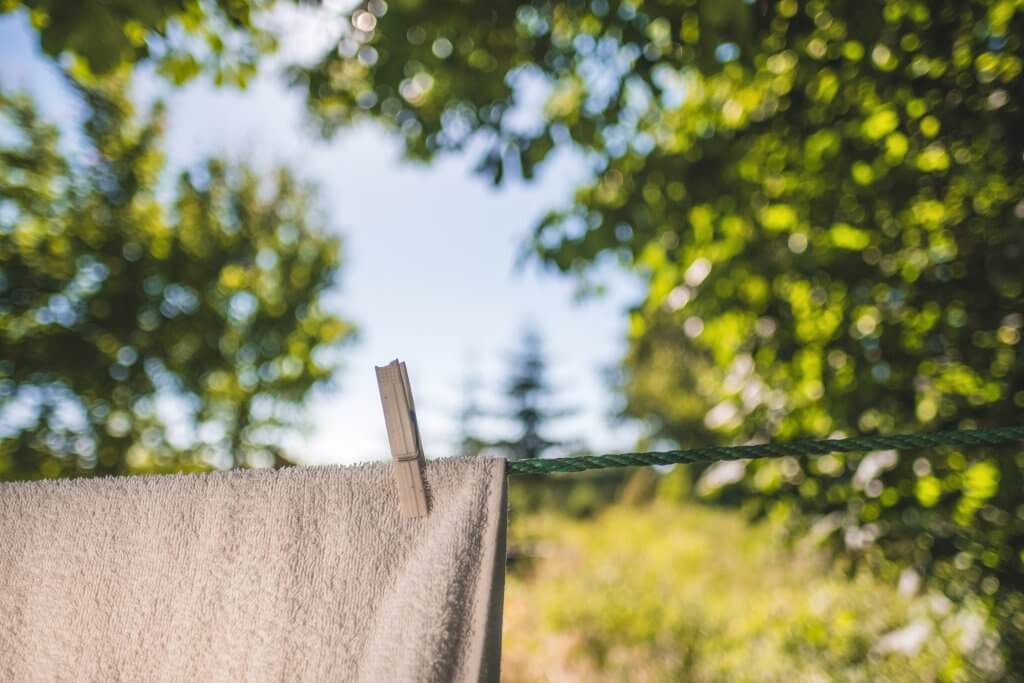
- Use a cold wash. Washing your clothes in cold water cuts the energy you use in one load by up to 90%.
- Avoid the tumble dryer – use a clothes rack or line instead. The average household generates about 200 kg of carbon dioxide a year from tumble drying alone.
- Cut down on laundry altogether. If it’s not dirty, don’t put it in the wash.
3. Turn your thermostat down
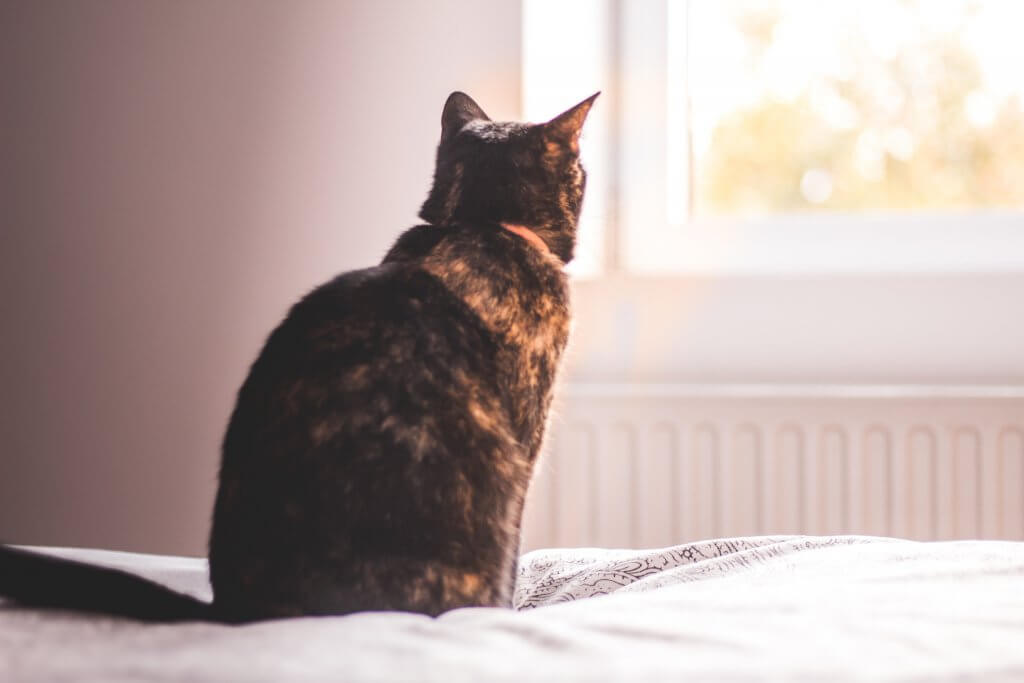
The heating and cooling of buildings account for a shocking 50% of the greenhouse gas emissions produced by the UK.
Luckily, some small changes can make a huge difference:
- Just turning your thermostat down by 1°C can save 8% in heating costs (and the equivalent in emissions).
- Leaving a window open overnight in winter wastes the equivalent energy to power a small car for over 35 miles. If you’re guilt f this bad habit, it’s time to think twice.
So save the planet, and yourself some money, by managing your heating in a more efficient way.
4. Unplug your appliances

Devices left on standby mode use a vast amount of unnecessary energy. In most homes, devices left on standby account for between 5 and 10% of the total electricity used. In aggregate, devices on standby account for 1% of the world’s carbon dioxide emissions.
This is because many appliances, such as computers, will use up to 90% of their normal power despite being out of use in standby mode. To put this into perspective, leaving a PC on standby overnight for a year will create enough CO2 to fill a two-storey bus.
And it’s not just when devices are plugged in. Chargers are culprits too. When a mobile charger is left plugged in, only 5% of the energy it draws will be used to charge the phone – the other 95% is simply leaked when the charger is not in use.
The most sure way to eliminate standby power is to unplug your appliances and charges entirely. Another alternative is to plug your appliances into smart meters or bye bye standby appliances which can be powered down completely.
5. Up your recycling game
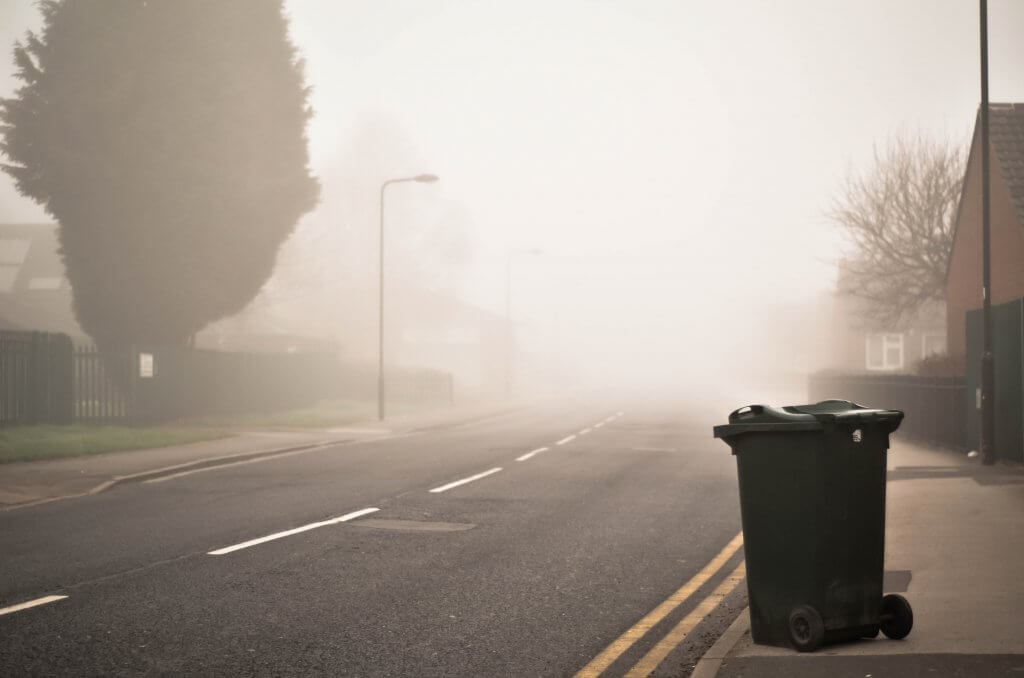
Less than half of the plastic produced in the UK and Ireland is recycled. Us Irish are particularly criminal, producing the sixth-highest amount of rubbish per head in the EU. We produce 585 kg of rubbish per head a year – over 100 kg more per head than the EU average.
Recycling our plastics is a good thing for the environment. Just one tonne of recycled plastic will save: 23 cubic metres of landfill space, 3,114 l of oil, and 20, 786 MJ of electricity.
Here are some tips to help you make sure you really are doing your bit when it comes to recycling:
- Wash those dirty food containers. All bottles, cartons and jars should be clean before put in the recycling bin – otherwise they won’t be processed. Things that can’t be washed, like takeaway pizza boxes, where the food has permeated the container cannot be recycled at all.
- Remove lid tops. Lids to bottles and jars are made from different materials to their containers and need to be recycled separately. Both lid and bottle can only be recycled if you separate them yourself.
- No wet or shredded paper. The fibres that make up paper are destroyed when shredded or wet and so cannot be recycled to make new paper.
Shop smarter:
6. Eat in local and in season
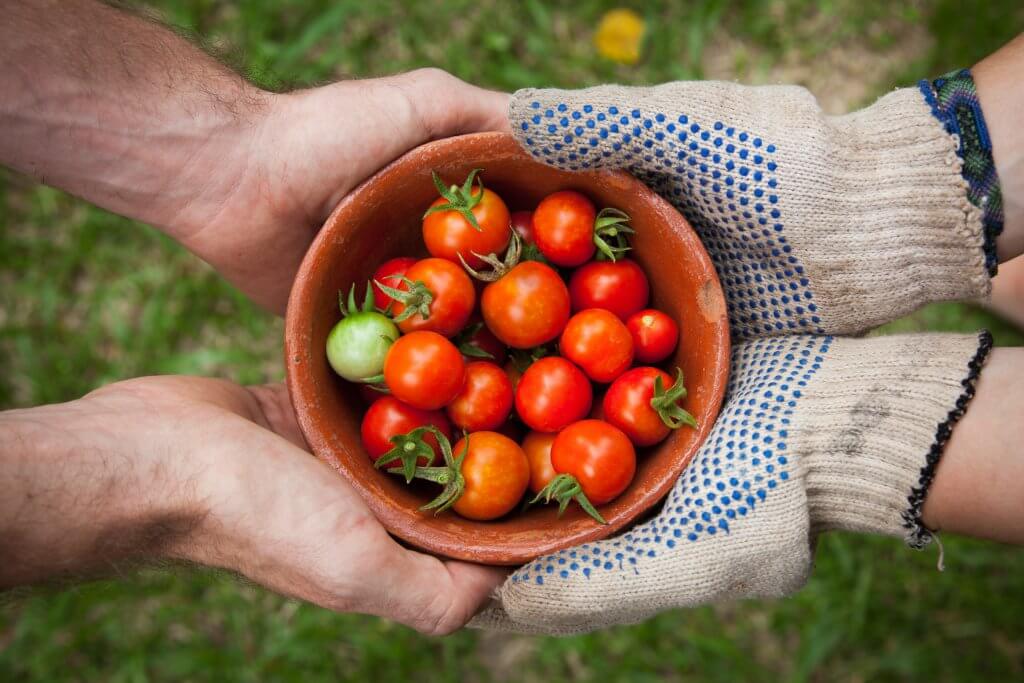
Just the transport of food accounts for 20% of the greenhouse gas emissions produced by the food industry. Buying local produce where possible will help to cut down your contribution to emissions. However, be warned. Buying ‘local’ food from a supermarket might not always reduce your emissions as very often food is transported to a central processing and packaging plant. Buying from a farmers market is the only really surefire way to reduce your food miles.
And it’s not just eating locally that’s important. Eat those local fruits and veg in season. Local tomatoes grown in a hothouse during the winter, or apples kept in cold storage to be eaten in the summer, will create more emissions than the same fruits imported all the way from New Zealand. So instead of mindlessly grabbing those bananas, check out what’s in season and make a more thoughtful decision.
7. Cut your meat intake
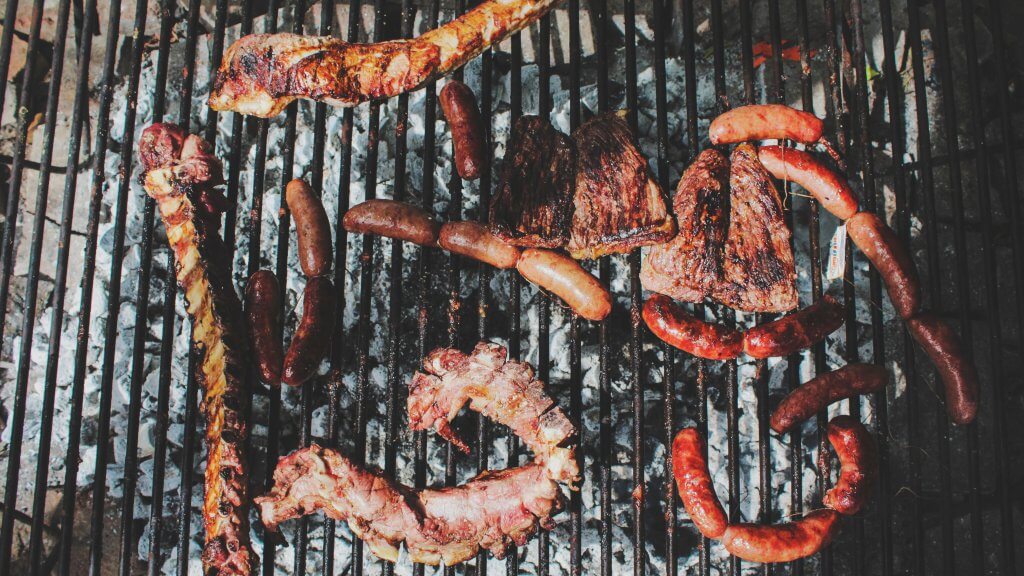
An estimated 20% of the world’s greenhouse gas emissions from human-related activities come from livestock farming.
Much of this is due to the greenhouse gases produced by animals themselves. 65% of the total quantity of nitrous oxide produced by human activity comes from animal manure. While cows and sheep produce 37% of the total methane. Both of these gases contribute far more to global warming than CO2. The heat trapping effect of methane is 30 times that of CO2 and nitrous oxide is a whopping 300 times more damaging.
And the harmful effects of meat don’t stop there. Our hunger for meat has caused huge deforestation to make room for more pastures. Livestock farming is responsible for 70% of the deforestation of the Amazon rainforest.
The thing is, it hasn’t always been this way. The average person now eats twice as much meat as we did 50 years ago. This is one habit that has grown out of control.
Moving to a vegetarian diet could cut your food-related carbon emissions by half. But your change doesn’t have to be so drastic. Simply cutting your meat intake will have a positive effect. Consider taking up weekday vegetarianism, or if that’s still too much, make the Meat Free Mondays Pledge.
8. Carry your own reusable shopping bag
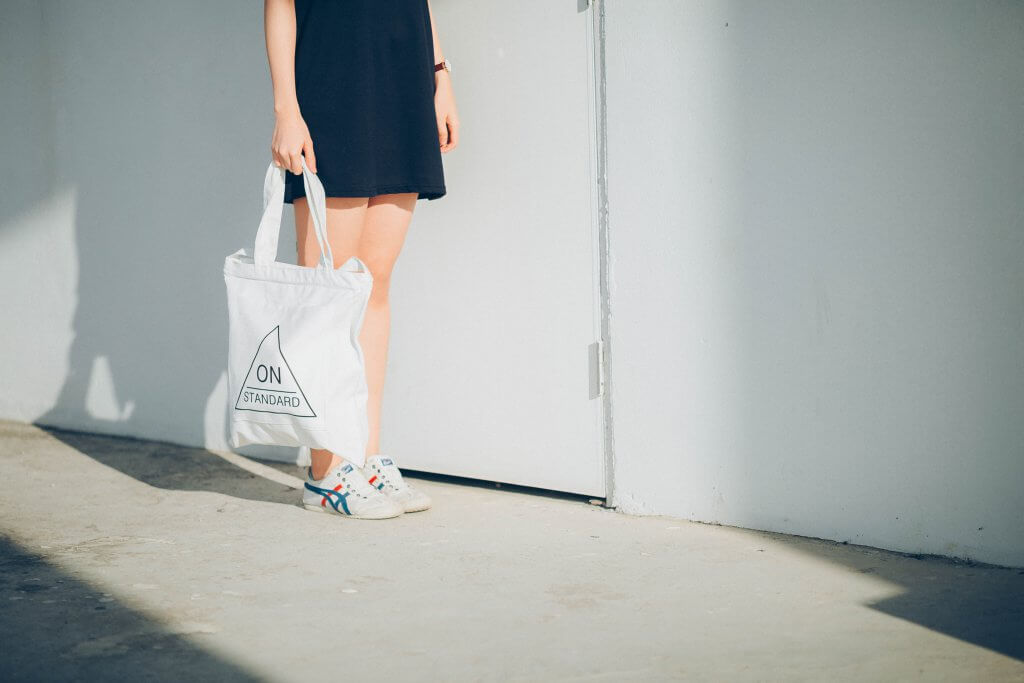
To produce just 5 plastic bags, roughly 1 kg of CO2 is created.
That being said, the real damage done by plastic bags is the fact that they are currently not recyclable, meaning the only thing for them in the landfill. Unfortunately, many plastic bags don’t make it that far and end up floating around as risks to our animals. Plastic bags are responsible for causing the deaths of over 100,000 marine animals, with sea turtles being most at risk accidentally mistaking the bags as jellyfish.
I think we can all agree that with so many reusable alternatives, plastic bags are something we can cut out of our lives for good. If you’re not doing it already, get on the case!
9. Choose waste-free options
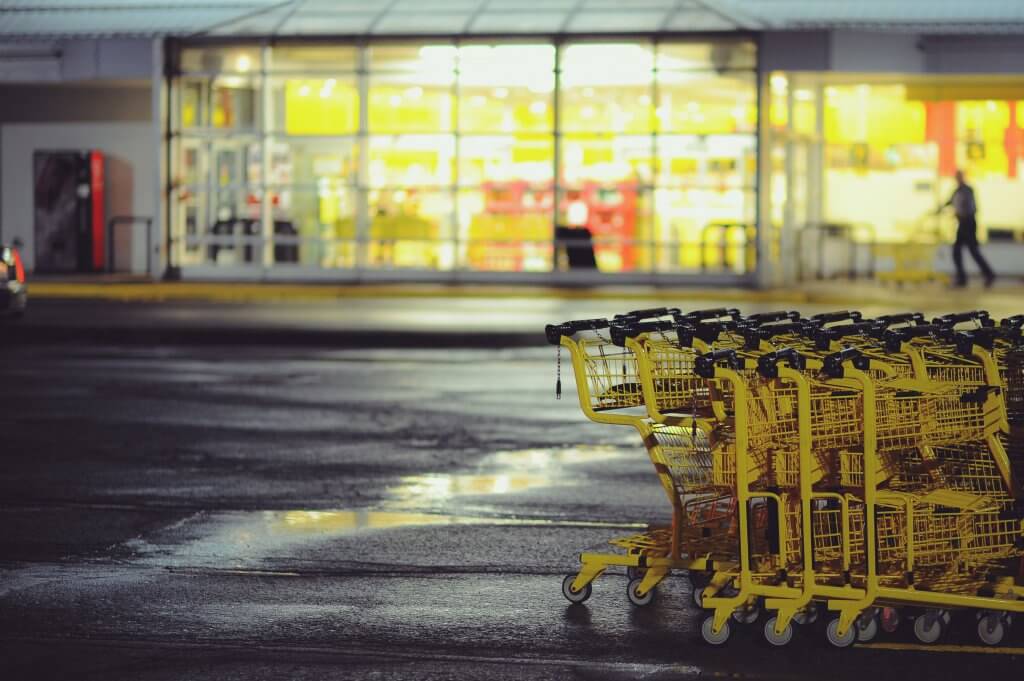
Lowering your carbon footprint can just be about very simple choices. We’ve already talked about recycling, but much of cutting carbon emissions is to do with reducing what we produce to begin with. Next time you go to the supermarket, opt for buying loose fruits and vegetables instead of the prepackaged stuff.
And when you have to buy packaged goods, try to buy product packaging that can be recycled in its entirety – no plastic films, or mixed materials. You’ll be on your way to waste free living in no time!
10. Think before you buy

We live in a world of fast fashion. Clothing is so cheap now, it’s the done thing to buy new the latest trends.
But our shopping habits have environmental consequences. The production non-natural fibres found in many of our clothes releases incredibly damaging greenhouse gas nitrous oxide into the atmosphere. We should be trying to make the clothes we have last longer, and reducing our rate of clothes production. The Bureau of International Recycling found that rescuing just one kilogramme of used and unwanted clothing from the landfill can save up to 3.6 kg of CO2.
Next time you’re out shopping consider instead:
- Do I really need it? Is it something that you might wear for years, or simply a trend that you’re going to tire of in months?
- Doing a clothes swap. Swap your unwanted clothes with friends and family. The items you no longer wear won’t go to waste and you can refresh your wardrobe in an environmentally friendly way – and it doesn’t cost a penny!
- Shopping second hand. Pop into your local charity shop instead, or browse online. There’s a lot out there, go out and find it!
Green habits out and about:
11. Have your coffee in (not take away)

It is estimated that over 2 million single-use coffee cups are sent to landfills in Ireland every day.
Despite what many people may think, disposable coffee cups up not recyclable. This is because to make coffee cups water-resistant, they are made with a combination of plastic and paper, something which is very difficult to separate in the recycling process.
So next time you fancy a coffee, think about having your coffee in instead. Or if you’re really in a rush, carry a reusable cup which you can ask to be filled at cafes. Some coffee shops are even starting to reward customers who bring their own cup – all the more reason to change your habits!
12. Don’t get a straw

Let’s face it, plastic straws in drinks are entirely unnecessary. At home none of us use straws, but somehow when we’re out and about it’s the norm.
Producing all this unnecessary plastic is environmentally costly – we need to extract and burn more oil and gas which, yes, creates greenhouse gases. And our disposal of these one-use plastics isn’t something to be proud of. Only a tiny fraction (14%) of one-time-use plastics are collected for recycling. The rest is sent to landfills, incinerated, or leaks out into rivers and oceans.
Straws and stirrers are among the top 10 plastic debris collected during coastal clean ups. These small plastic objects are particularly dangerous for marine life – straws have been known to tear the stomachs of penguins or get stuck in sea turtles’ nostrils.
So next time you order a drink, politely decline the straw. For more information on the Last Plastic Straw campaign visit their webpage.
13. Use the hand dryer not paper towels!
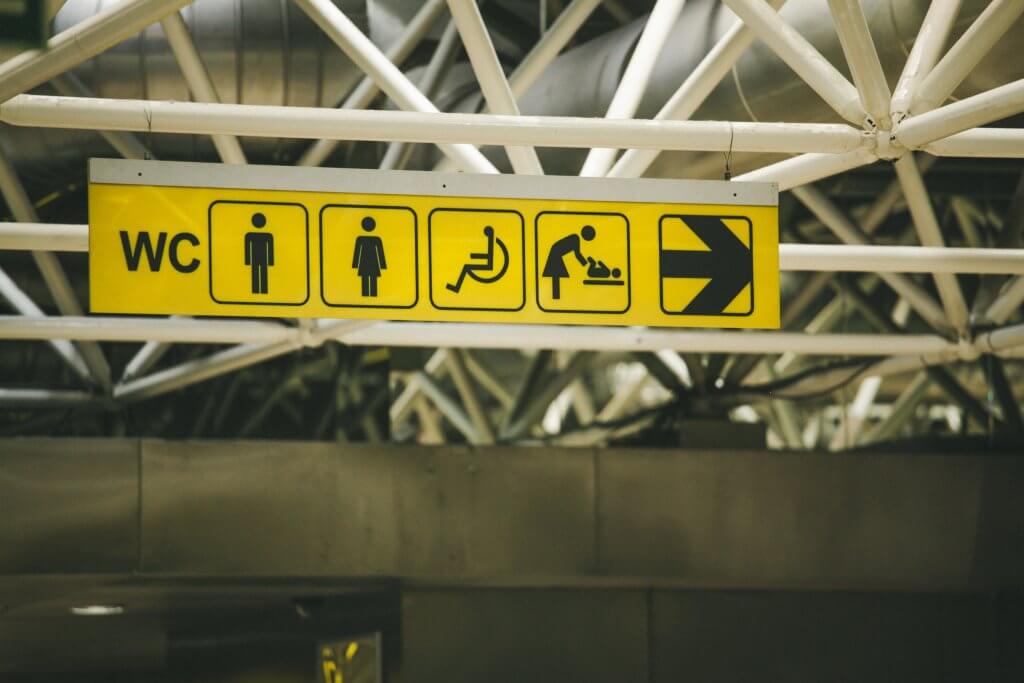
A really simple choice to make every time you use a public bathroom – use the hand dryer not paper towels! You might think that paper towels can be recycled, but this is simply not the case. When paper gets wet, some of the fibres break down and this means that it cannot be reused. So save some trees and opt for the hand dryer.
14. Cut the car
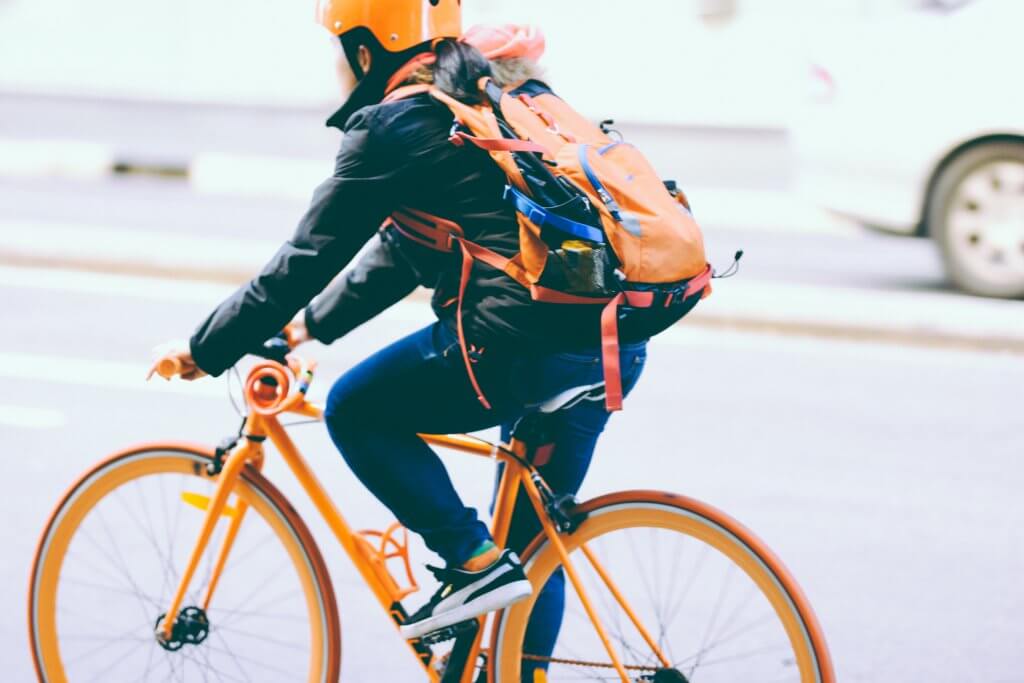
On average, roughly 10% of a person’s personal carbon dioxide emissions are due to everyday travel on the roads. But by making a simply switch to public transport – where the carbon output is shared by more heads, we can cut our personal emissions by half.
Moreover, of all the car journeys we make, 25% are less than 2 miles in length. So next time you’re about to make a short journey, think about getting some fresh air by walking or cycling instead.
About a quarter of all car journeys are less than 2 miles in length. Rather than go by car, try walking or cycling instead.
15. Reduce your air miles

This is the real big hitter.
Air travel is responsible for more emitting more than 650 million tonnes of carbon into the atmosphere every year – as much as would be produced by 136 million cars. On a more individual level, if you take 5 long haul flights a year, this is likely to account for roughly three quarters of your total emissions for that year.
So if you’re a bit of a jet-setter it’s time to make some changes:
- Try not to fly at all. Make a pledge to yourself to limit your air miles. Perhaps only allow yourself one long haul return flight a year. If you travel for work, try and do more by video call instead.
- If you do fly, do your research. Always try and fly with the most carbon efficient airline.
- Travel economy class. The seats are packed closer together in economy, meaning that the carbon emissions per person are reduced.
Offset your carbon footprint. Many airlines offer this to you as an option. It’s nowhere near as good as taking the above actions but it’s still something.
Check out our Hard as Nails podcast:
Liked this? Take a look at our other articles below:



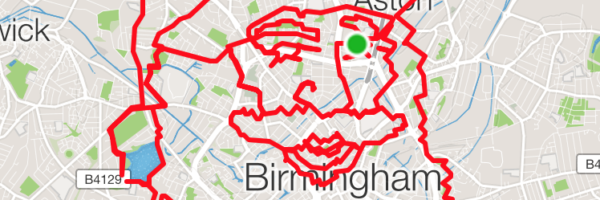
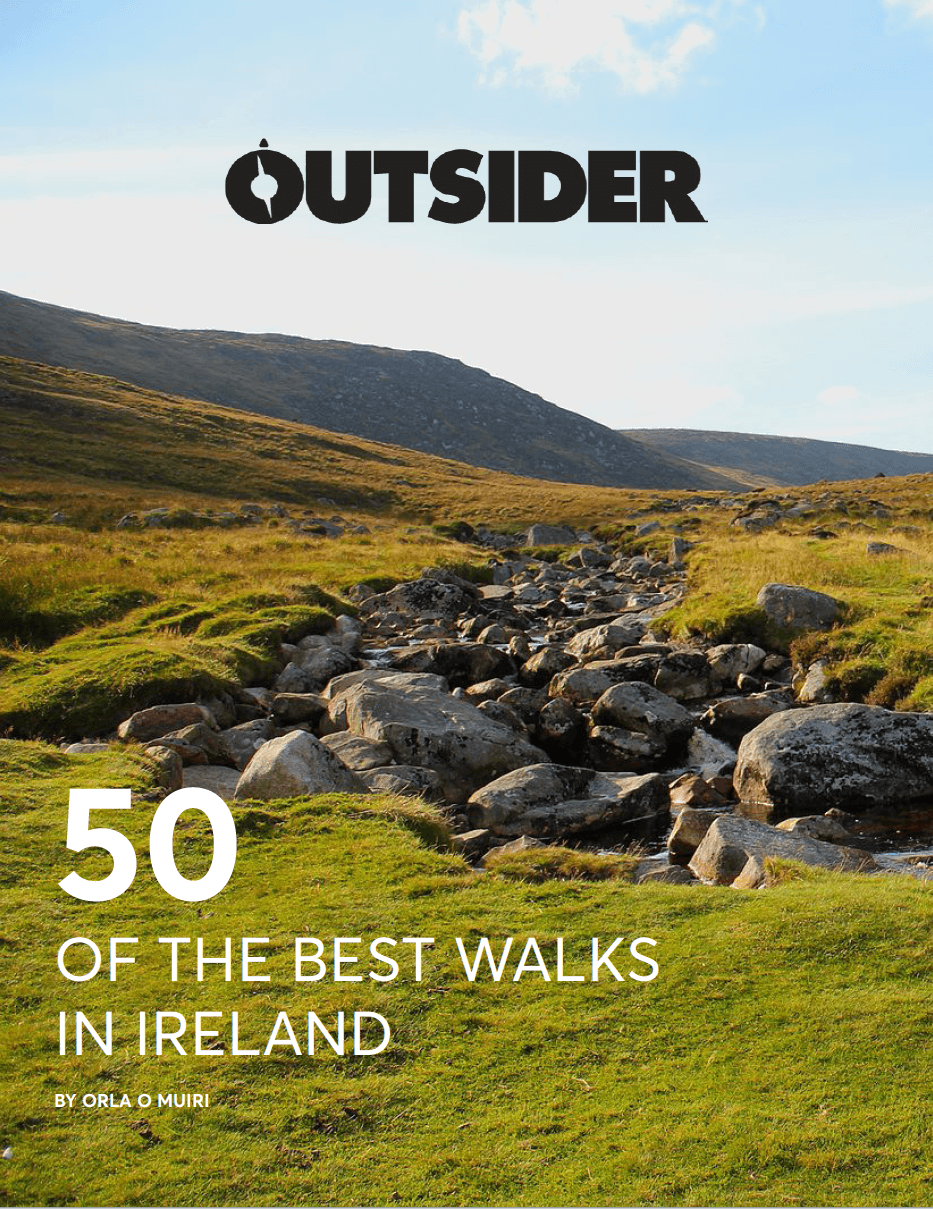






can I contact you to discuss the abundance of plastic litter in the environment. Perhaps i could interview you for the Mooney goes Wild radio programme?
Eanna Ni Lamhna
Tx for all these useful tips. Just on pizza boxes – agree they’re not recyclable because contaminated but my waste removal company (AES) takes pizza boxes in the COMPOST bin which I presume means they break down in compost.